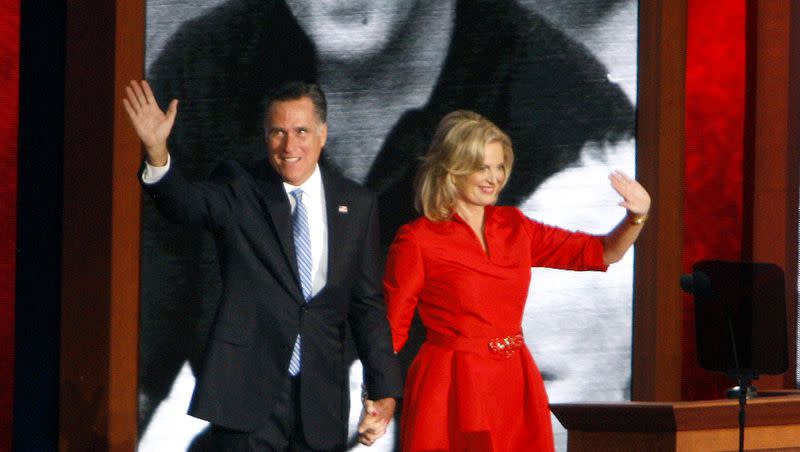Romney considered dropping out of 2012 race after ‘47%’ gaffe, new book reveals

- Oops!Something went wrong.Please try again later.
- Oops!Something went wrong.Please try again later.
- Oops!Something went wrong.Please try again later.
Sen. Mitt Romney considered dropping out of the 2012 presidential race less than two months before Election Day, a new book reveals.
In September 2017, Mother Jones published a video from a Romney fundraiser in which the then-Republican Party nominee claims that 47% of Americans are “dependent upon government” and are “victims.” The leaked video, and the subsequent backlash, was a factor in Romney’s eventual loss to incumbent President Barack Obama.
Related
In McKay Coppins’ new book, “Romney: A Reckoning,” it is revealed that Romney considered quitting his campaign after the gaffe went public. Romney “sank into a depression so deep that some in his orbit would wonder if his suffering was clinical,” Coppins writes:
He could barely eat during the day and struggled to sleep at night, even after popping a Lunesta. He couldn’t even bring himself to listen to music in his hotel room — “just too sick at heart,” he wrote (in his journal). When he tried to concentrate on briefing materials, his mind would drift toward the self-inflicted damage he had done to his campaign, and to all the people he had failed. To take his mind off it, he rode the elliptical at a punishing pace.
Two weeks after the video leaked, Romney called his adviser, Stuart Stevens, and asked: “Should I just drop out of the race?” Romney figured a Republican like Chris Christie or Rob Portman would have a better chance of winning.
Stevens talked him out of it.
This wasn’t the end to Romney’s political career. After moving to Utah, he was elected to the U.S. Senate and became one of the most prominent Republican political adversaries of former President Donald Trump. This year Romney announced he will not seek reelection.

